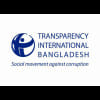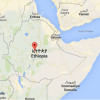South Asian Women in Middle East: Work contracts do little to deter abuse
Hundreds of thousands of South Asian women migrant workers in the Middle East have signed employment contracts that they do not understand or do not adequately protect them against discrimination and abuse, says a new report.
The study was carried out by UN Women and the International Organization for Migration (IOM) with support from the Swiss Agency for Development and Cooperation.
The findings were discussed at a stakeholder consultation in the Nepali capital Kathmandu in the last two days.
The study focused on migration from South Asian countries to the Middle East, which has been booming since oil-generated wealth started growing in the region in the 1970s.
At present, India is the largest sending country (at 747,000 workers), followed by Pakistan (623,000), Nepal (454,000), Bangladesh (409,000) and Sri Lanka (282,000).
But with this increase have come associated vulnerabilities, exploitation and abuse of migrant workers, particularly women, according to UN Women Asia and the IOM.
Templates for standard contracts are available, and in some cases referenced in national legislation or bilateral labour agreements, but are often not applied effectively, the study found.
“There is a colossal gap between the Standard Terms of Employment template [STOE] and the employment contracts that are used for female labour migration.
“Without addressing the gaps that exist in the current female labour migration, applying an idealistic contract template is not feasible.”
While it is widely acknowledged that migration has made multi-dimensional positive contribution on socio-economic development of countries of origin and destination, it also brings in associated potential risks of exploitation and abuse of migrant workers, and women migrant workers are the most vulnerable ones, said Paul Norton, chief of mission of IOM Nepal, at the inaugural session.
“In order to accelerate progress towards the protection and promotion of rights of women migrant workers, there is need to take into account the regional and local priorities and responses,” he added.
Formalising women's roles with official contracts is a basic component to ensure their access to safe and fair labour migration, said Sukanya Thongthumrong, officer-in-charge of Regional Migration and Women's Economic Empowerment of UN Women Asia-Pacific.
“The guiding gender-responsive template developed by UN Women and the Swiss Agency for Development and Cooperation can help move towards the implementation of fair, transparent and gender-sensitive STOEs, which are a powerful tool to promote the ethical recruitment of women,” she added.
The template could also be used as a basis for bilateral labour agreements between South Asian sending countries and the Middle Eastern host countries, the study said. The countries' respective labour attaches play a critical role in this process, it mentioned.
Officials, diplomats, delegates from international organisations and representatives of civil society were in the Nepalese capital on December 20-21 to discuss the findings of the report, and how best to include gender-sensitive priorities in such bilateral agreements in future.
“While we talk about the multi-dimensional contributions made by the labour migrants, they continue to face problems in the entire migration cycle, in the countries of origin, transit and destination, which start from the recruitment phase, in the workplace and during return.
“It is the shared responsibility of all the stakeholders -- the private sector recruiting agencies, employers, countries of origin, transit and destination and the international agencies -- to protect workers from all forms of exploitation and to ensure their safety, security, health and well-being,” said Laxman Prasad Mainali, secretary of Nepal's labour and employment ministry.
“Women migrant workers must be able to make informed choices about their employment, they must be able to understand and consent to their contracts, and be confident that those contracts meet certain standards, and will be respected or enforced,” said Thongthumrong.
“Only then will they be able to make the most of the opportunities for themselves, their families, their futures and for the communities that host them,” she added.

 For all latest news, follow The Daily Star's Google News channel.
For all latest news, follow The Daily Star's Google News channel. 








Comments